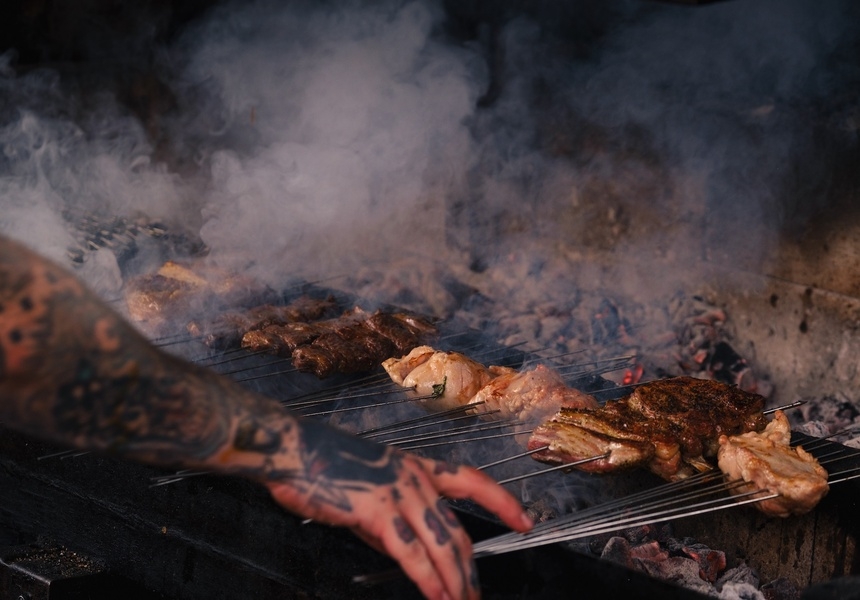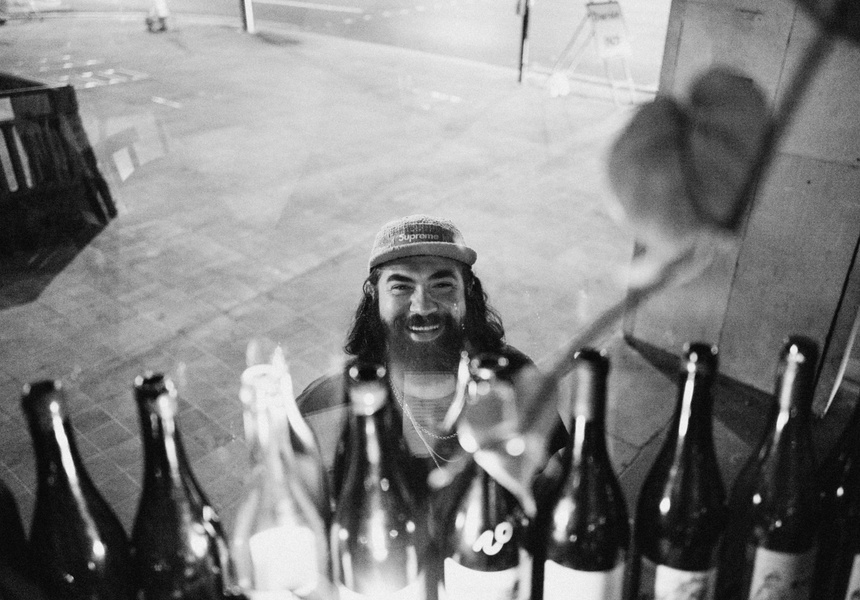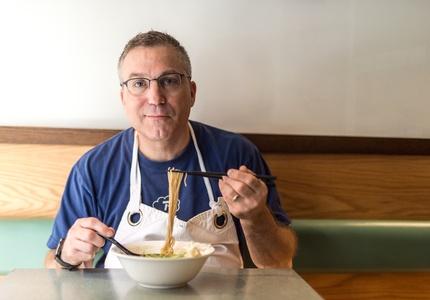When Meedu Saad left the kitchen at lauded Thai restaurant Kiln, he didn’t head far – geographically or spiritually. While his new restaurant, Impala, which opens early next year in Soho, builds on years of travel, study and curiosity, it is anchored by the chef’s London upbringing and Egyptian heritage. His new restaurant is part of the Super 8 group, which is behind Kiln as well as Smoking Goat, Brat and Mountain.
“It’s not so much an idea as a project built from memories that have shaped my cooking,” says Saad, who remains executive chef at Kiln. The name comes from the 1964 Chevrolet Impala he and his cousins drove across Egypt as teenagers. “That time was about freedom and exploration. Impala carries those same themes.”
Saad’s explorations of Cairo, Nicosia and even north London have informed a style that blends North African, eastern Mediterranean and Cypriot influences with technical precision.
“We’ve dedicated years of research and development to building our repertoire,” he says. “When designing our grill, we travelled to cities that embrace cooking over fire, like Tokyo, Istanbul, Athens and Cairo, to study temperature, distance, intention. Things that seem minute have been honed in great detail to create the blueprint for Impala’s cooking.”
At its core, Impala’s menu is an ode to the Egyptian spirit. “The energy of Cairo is fast and chaotic. I want that same rhythm in the food,” Saad says. Expect skewered meats and fish cooked quickly over coals, buttered grains spooned from large pots, and sauces made to order. Much of the menu is made for communal eating. “The table will always be adorned with plates of food. That feeling of generosity was necessary when designing this menu.”
While Saad draws deeply from his Egyptian roots, Impala is also unmistakably a London restaurant. “I’m a Londoner at heart,” he says. “North London specifically, with its Greek and Turkish Cypriot diaspora.” Dishes like oxtail with bird’s tongue pasta (similar to orzo and inspired by Cypriot kritharaki) will sit alongside vegetables braised in olive oil, salted cheeses and other echoes of the city’s mangal houses.
For the design, Saad and his team were guided by the sculptural minimalism of modernist architects such as Carlo Mollino and Carlo Scarpa. “It’s been a fun project, going through old books and auction catalogues,” Saad says. “We wanted to build a space that feels alive and grounded in the cities that inspired it.”
The restaurant will be centred around a custom grill, visible from nearly every seat. “The grill is at the heart of the room,” he says. “I want guests to feel that same rush as when you walk into one of the restaurants on Green Lanes on a Friday night: camaraderie and chaos, but you know you’re in for a good time.”
Beyond the theatre, Saad has built a network of close relationships with the farmers and winemakers supplying ingredients for the restaurant. “We’ll be ageing fish and preserving ingredients at their peak to carry through the seasons,” he says. “Pickled aubergines stuffed with chillies from our farms this summer, citrus salted and marinated with saffron and olive oil from the winter months, served alongside fresh cheeses and breads baked daily.”
Saad says Impala is a chance to give something back to the city that shaped him. “London is where I was born and started my career. Hopefully adding something special to its already incredible dining landscape [will be] an honour and a privilege.”
Above all, he hopes Impala will be “a restaurant with real energy, real stories, and a true sense of place.” A space “to feel welcome and familiar, yet discover something new each time you visit – a chance for curiosity and romance”.
Impala opens at 14 Dean Street, W1D 3RS in spring 2026.




